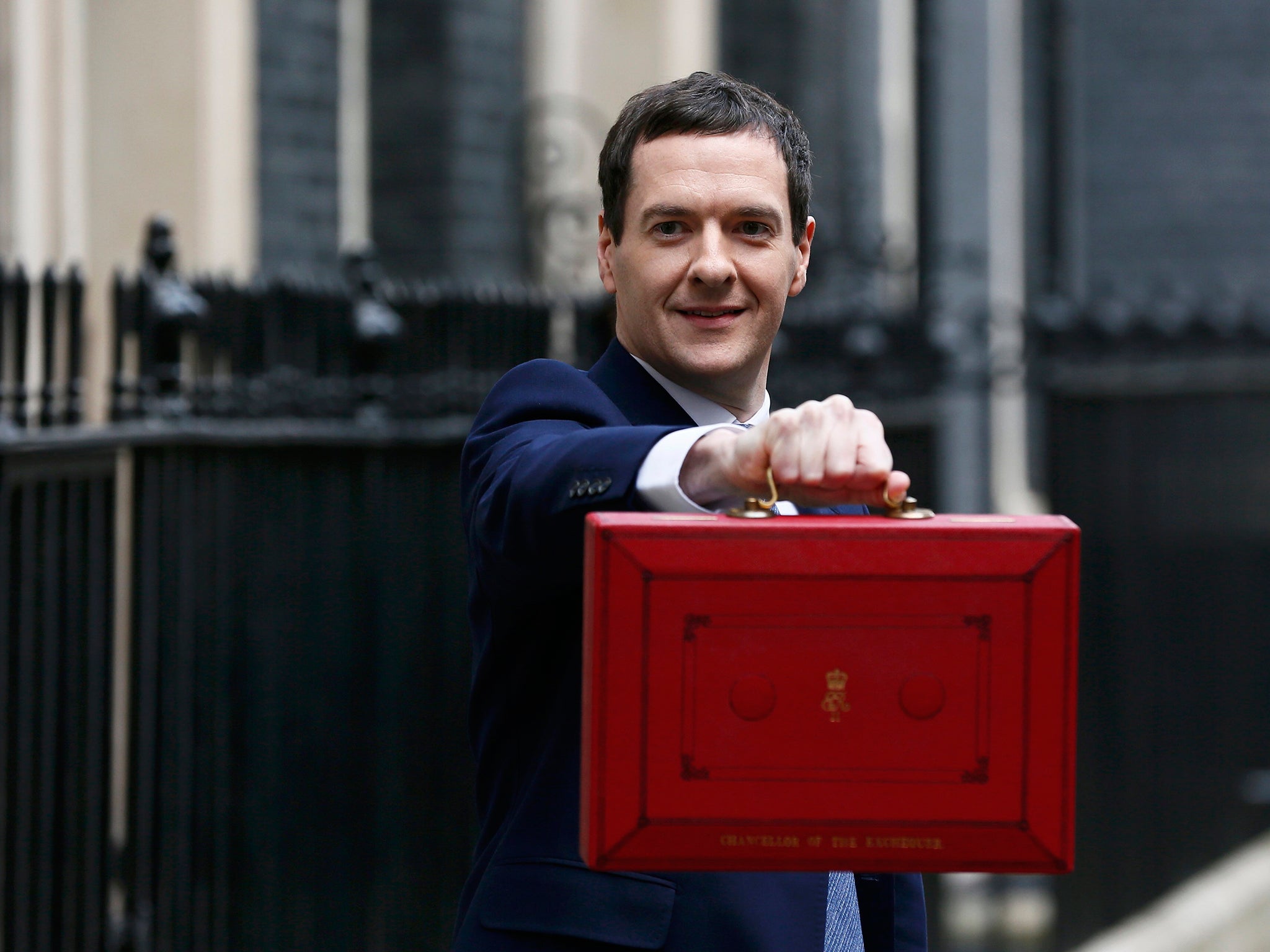Budget 2016: George Osborne is astute, but cannot change the cards he is dealt
His hand now looks weaker than the one he appeared to have four months ago

How fast can the British economy grow? Not this year or next, for that is determined largely by the state of the world economy, but in the really long term. For if we can, from a mixture of modest increases in population and reasonable growth in productivity, grow by 2.5 per cent or more, then our children will on average have a better standard of living than their parents. If on the other hand long-run growth turns out to be below 2 per cent, given the burden of an ageing population, they may well not.
That stark question was the backcloth to the budget. There were interesting tweaks in the budget itself, of which more in a moment, but the overriding issue will be how fast the economy can grow. The overall outlook for the British economy has not changed much since last November, despite all this stuff about a cocktail of threats. But the Office for Budget Responsibility has revised its growth forecasts down sharply – this year from 2.4 per cent to 2.0 per cent, but more significantly from 2017 to 2020 from 2.5-2.3 per cent to 2.2-2.1 per cent. That may not sound a lot, but it leaves the economy 1.5 per cent smaller in 2020 that it would otherwise have been and, without the Chancellor’s latest cuts in spending, with a deficit instead of a surplus. George Osborne is astute, at least most of the time. But he cannot change the hand of cards he is dealt, and that hand now looks weaker than the one he appeared to have four months ago.
The simplest way to get one’s head around what he is really doing is to focus on two numbers: tax revenues and public spending as a percentage of GDP. Revenues in the current financial year, the one that ends on 5 April, will be 36.3 per cent of GDP. By 2020-21 they will, on present plans, be 37.4 per cent of GDP. For all the rhetoric about reducing the tax burden, Tory enterprise values and all that, he is increasing the tax burden by more than one percentage point of GDP. That is about £20bn a year.
Now the spending side. At present it is 40.2 per cent of GDP, and it is projected to come down to 36.9 per cent by 2020-21. At that level we would be back to the size of government, as a percentage of the economy as a whole, of the late 1990s – you might call it early Gordon Brown. The mix will be slightly different: more spending on the NHS and welfare generally, and less on defence and interest charges. The challenge for the public sector is whether it can, by applying the new technologies and by managing itself more effectively, give a level of service that the electorate finds acceptable. The call that the Chancellor is making is that by pushing power and responsibility outwards – for example to mayors, devolved regions and to academies – is that this slimmer state will be able to deliver a better deal than the more centralised late 1990s version.
Of the rest, they are tweaks. It is always hard to know which of these will prove really important and which will disappear into the mists of budgets past. The company tax changes may look substantial but since their overall impact is intended to be revenue neutral I’m not sure they will have much lasting effect. Cutting the headline corporation tax rate, though, does send a helpful signal to companies considering locating to the UK. The cuts in capital-gains tax are probably designed to bring in more money, not less, for there seems to be some evidence that the 28 per cent top rate was too high to maximise revenue. As for the savings and pension changes, it will probably be two or three years before we know how people will respond. As a country we have to try to nudge people into saving more, for we have really low personal savings rates compared with most developed countries. Maybe these will lead to a further shift in habits – but we cannot know.
Chancellors pull the levers, but neither they nor the rest of us know whether there is anything connected at the other end. There are many other determinants of economic success. The UK economy has been very good at creating jobs, including jobs for immigrants, but much less so at boosting productivity. There is scope to get yet more people into work, for though participation rates are at a record they are still lower than Germany. But ultimately what matters is how cleverly we work, how productive we are, and I suspect that this has not much to do with what the Chancellor of the day does in the Budget.
Subscribe to Independent Premium to bookmark this article
Want to bookmark your favourite articles and stories to read or reference later? Start your Independent Premium subscription today.

Join our commenting forum
Join thought-provoking conversations, follow other Independent readers and see their replies